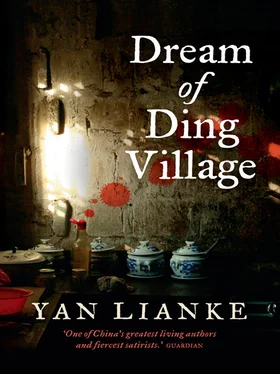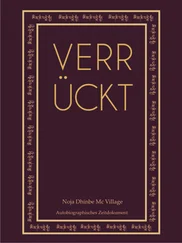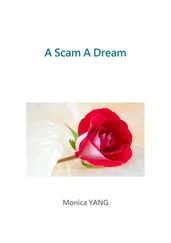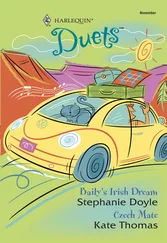‘Shall we get started?’ Grandpa asked loudly. ‘The moon’s already risen.’
‘Let’s begin,’ answered Ma Xianglin in his sing-song voice.
With these words, Ma Xianglin was miraculously transformed. He began tuning his fiddle and confidently testing the strings (the instrument was already in perfect tune, and he knew it). Everyone knew that his white hair, scabby skin and purplish lips and gums were bad omens, signs that death was near. But as Ma Xianglin started to play, his face regained some colour, a glow that seemed to come from deep within. He smiled at the villagers and then, composing his expression, drew the bow across the strings of his fiddle. He looked as cheerful as a rosy-cheeked young man preparing for his wedding. Even the sores on his face glowed red beneath the stage-lights, like tiny spots of brightness.
The blood seemed to have returned to Ma Xianglin’s darkened lips, turning them red again. Eyes half-closed, he bobbed his head in time with the music, playing only for himself, as if the audience didn’t even exist. The fingers of his left hand moved up and down the neck of his instrument; now slowly, now more quickly. With his right hand, he drew his bow back and forth between the strings; now quickly, now slowly again. The sound that emerged was like water flowing across parched desert sands. Clear and cool, but with an undercurrent of stifling heat; hot and prickly, but with a promise of something fresh and clean. After nodding a few times, Ma Xianglin announced that he would open with ‘Words on Leaving Home’, a ballad known to all the villagers. He cleared his throat and began to sing:
A son left home to journey far away
His mother saw him to the village gates
Her words fell light upon his ears
But proved worth their weight in gold
Oh son, she said, my son
The world out there is not like home
Remember to dress warmly
When the weather’s cold
And keep your pantry stocked
So that you never starve
When you meet an old gent
Respect him as you would your father
When you meet an old woman
Address her as you would your mother
Call the older ladies ‘Auntie’
And the younger ladies ‘Ma’am’
Treat young women as your sisters
And young men like brothers of your clan . .
When Ma Xianglin had finished singing the song, he launched into another about Mu Guiying, the famous female general of the Song dynasty. He sang about Cheng Yaojin, a salt merchant who had led a peasant uprising during the Sui dynasty. He recounted the adventures of the ‘Three Knights-Errant and the Five Sworn Brothers’ and other well-known heroes from Chinese history.
As Ma Xianglin basked in the glory of being on stage, the villagers became conscious of small details they had forgotten about him. For one thing, Ma Xianglin had never had a talent for remembering lyrics. As a young man, he’d failed to master the big book of lyrics and librettos that all students of Hunan folk opera were required to memorize. Although he had been an enthusiastic student, his inability to memorize lyrics and his tendency to play and sing off-key had led his operatic master to dismiss him from the theatre troupe. Thus deprived of a professional career, Ma Xianglin had spent a lifetime singing and playing his three-stringed fiddle in the confines of his family’s courtyard. This night, before an audience of 300 people, was no different: Ma Xianglin had still not mastered that big book of lyrics and librettos. Unable to remember all the words, he simply sang the passages he could remember. Fortunately, those he remembered were the best ones.
Ma Xianglin performed well-loved songs, extracts from his favourite plays and bits from operas. Not only was it his first time performing for the villagers, it was the first time he’d played on a real stage. It was his first proper performance, and perhaps his last. For all these reasons, and because Grandpa had gone to so much trouble to arrange the concert, Ma Xianglin put forth all the passion and concentration he could muster. He stood straight and tall, his head held high. He sang with half-closed eyes, seeing no one, completely immersed in his music. As the fingers of his left hand danced up and down the strings of his fiddle, he drew the bow in his right hand back and forth. Although his voice was a bit raspy, its coarseness was like a pinch of salt in a pot of pork-bone soup: it only made the broth seem tastier.
He sang in the local dialect and his audience could understand every word. He sang about generals and rebels, robbers and heroes, and real-life characters from Chinese history, all of whose names were known to most of the villagers, at least the older ones, and whose faces often decorated colourful Chinese New Year posters. Although these characters had lived hundreds, even thousands of years ago, their adventures were as familiar to the villagers as if they’d happened yesterday. For those who knew the stories already, hearing Ma Xianglin perform was like eating from only the finest dishes at the banquet. For teenagers and children who didn’t know the background to the stories, watching Ma Xianglin’s gestures and expressions was enough.
As Ma Xianglin bobbed his head in time to the music, his forehead began to perspire, giving his face an even ruddier glow. Beads of sweat flew from his face, spattering the people sitting nearest. The rhythmic tapping of his feet on the willow planks of the stage sounded like someone striking a wooden fish-drum over and over. When he reached a particularly exciting passage, he would begin stomping on the boards with his right foot, like he was pounding a gigantic drum.
Although the schoolyard was filled with music and song, the evening was eerily silent. No one in the audience made a sound. The moon and stars above were milky-white; they cast a stark, radiant light over the plain. From distant fields of wheat, now blanketed in pale-green seedlings, came the whisper of new life, a sound as imperceptible as a cloud of feathers drifting through the air. In fields that had been allowed to go fallow — for some of the villagers, there seemed little point in planting this season — rows of withered stalks gleamed pale beneath the moonlight, giving off a whiff of futility and decay. Closer still, from the ancient path of the Yellow River, the smell of sand: as if the grains had been heated over a fire and then doused with water. The scents converged in the schoolyard, mingling with the cool night air and touching the proceedings with a different kind of atmosphere, something peaceful and hypnotic, set to the strains of Ma Xianglin’s music.
Ma Xianglin smiled and nodded, bobbing his head in time to the beat. Like a maestro giving the performance of his career, he was so immersed in his singing that he scarcely noticed when his voice grew hoarse. The villagers were equally rapt. Watching Ma Xianglin’s impassioned performance, it was easy to forget that they were just like him: that they too had the fever and that any day might be their last. His passion was infectious. It was so easy to forget about everything. To think about nothing but the music, losing themselves in Ma Xianglin’s singing, the sound of his three-stringed fiddle and the rhythmic tapping of his feet on the boards of the stage.
That was all there was. Nothing else mattered.
A strange deathly silence had settled over the schoolyard. An audience of nearly 300 people, as quiet as an audience of one, listening to Ma Xianglin’s voice:
With sword in hand,
Xue Rengui marched west
For days and nights and hundreds of miles
His men and mounts withstood the test
Exhausted and outnumbered,
Through hamlets, villages and towns
They felled a mighty army
And struck their enemies down.
Читать дальше












